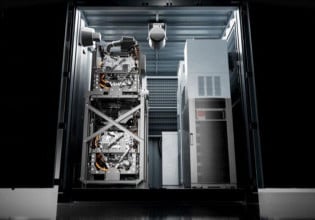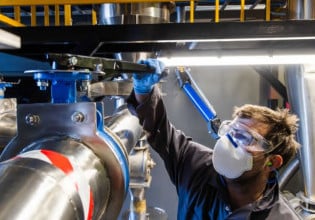AFS Trinity Signs Accord with Austin Energy to Bring Extreme Hybrid&trade Closer to PIP Fleets
AFS Trinity Power Corp. (AFST) and Austin Energy (AE) announced the signing of a memorandum of understanding that sets the stage for Plug-in Hybrid Electric Vehicles (PHEVs) to be put into the participating fleets of the Plug-in Partners (PIP) consortium of utilities and municipalities.
Although many hurdles still need to be surmounted before the first Extreme Hybrid™ rolls into a PIP participant fleet, "we took a big step today," said Roger Duncan, the Deputy General Manager of Austin Energy, which is the founding participant of PIP. Duncan continued, "The deal we signed today gives PIP participants the opportunity to be among the first to order AFS Trinity Extreme Hybrid™ vehicles. PIP's job is to encourage our members to lease these vehicles. AFS Trinity's objective is to complete development of the prototype and involve an automotive OEM as a development partner. All of these things must be accomplished for the agreement to work."
Duncan also noted that PIP regards this agreement as one of the most important developments to date in the plug-in hybrid field. The AFS Trinity technology is expected to permit PHEV cars and SUVs to have the same acceleration and highway speed performance in all-electric mode (when zero fuel is used) as when they are operated as conventional hybrids. In essence, for the first 40 miles that are driven, the XH™ is expected to have all of the benefits of a fully electric vehicle's zero fuel consumption and zero emissions but with performance equal to a conventional vehicle. This is significant because a 40- mile range is adequate for the daily driving needs of 75% of American drivers. Then, as a bonus, if and when necessary, the car can be operated in hybrid mode, increasing its range to more than 450 miles. In May, AFS Trinity announced it had filed a patent for an Extreme Hybrid™ drive train that makes possible a plug-in hybrid that will achieve mile-per-gallon figures of more than 250 MPG as a car and more than 150 MPG as an SUV.
Edward W. Furia, AFST's CEO, said, "This agreement is important not just as a validation of our technology but also as a clear path toward its commercialization. We have been talking with carmaker OEMs in the U.S. and in three other countries for several months. Once we complete an agreement with one or more of them, we will be able to specify the model and price of the vehicles we can offer to PIP participants."






